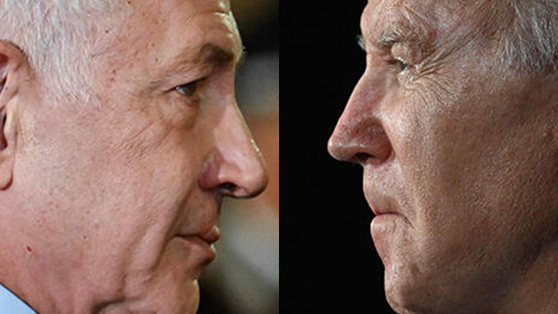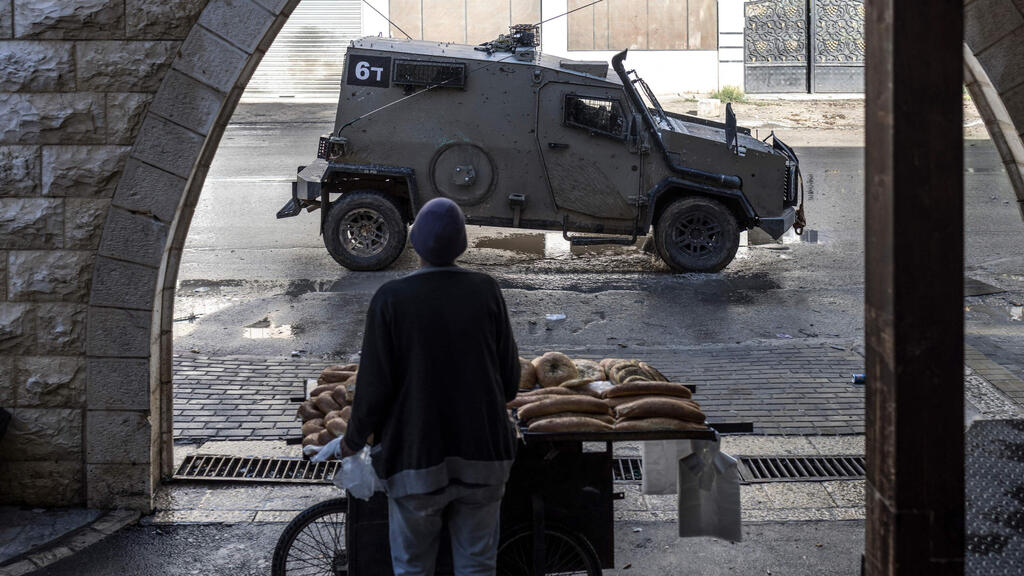Getting your Trinity Audio player ready...
To understand the comments made in the past days by U.S. President Joe Biden, regarding the diminishing support for Israel in the international community over the war in Gaza and his criticism of Prime Minister Benjamin Netanyahu's coalition, it is vital to understand what senior U.S. officials have been told by Israel.
More stories:
Washington has raised two major matters. The first is the failing of the Palestinian Authority and the second is a concern that the Israelis will hold on to territory in the Gaza Strip indefinitely. On both, Israel's stated positions have been disappointing to American ears and in fact have been cause for anxiety.
Israel made clear that it had no ambitions to annex or settle Gaza but does intend to keep a considerable military force in the northern part of the Strip, after the intense ground offensive is over the officials said. That sentiment has been conveyed to the Americans along with the expressed intent to prevent the return of displaced civilians from that area to their homes in the immediate aftermath of the fighting. Israel seeks to ensure that no terrorists would be able to return to the evacuated areas.
"This will be a gradual process," the officials said. "We will decide who returns to the north and who does not." The next phase will see the IDF remain in the north and along the Gaza River, on the outskirts of Gaza City.'
Netanyahu told members of the Knesset Foreign Affairs Committee that Israel's founder and first prime minister David Ben Gurion, was wrong to succumb to American pressure when he agreed to pull out of the Sinai after the 1956 war with Egypt. "A prime minister who cannot withstand American pressure should not enter the prime minister's office," he said causing some participants to chuckle at the notion that Netanyahu was comparing himself to Ben Gurion in such a way. They noted his record of bucking in the face of any pressure at all.
But there is a relatively broad agreement in the leadership, that a rapid and complete withdrawal of forces from northern Gaza was not an option. "We have no interest in remaining in the Strip," they said, but added that there was no way to ensure the security of the Gaza border communities without a temporary presence and the establishment of a security zone and that without that, the residents who were victims of the Hamas massacre of October 7, would not feel safe to return.
This sentiment is shared by most members of the war cabinet and will be conveyed to National Security Advisor Jake Sullivan when he arrives on Thursday.
On the matter of the weakened Palestinian Authority, the government has been presented repeatedly with intelligence reports indicating that there is a strategic danger of the PA's collapse amid the deteriorating economic situation on the West Bank and the provocations from Hamas to ignite violence there. The IDF has killed some 500 Palestinians, most of them terrorists in 2023, 300, since October 7.
The defense establishment recommended to the government, that Palestinian workers from the West Bank, should be allowed into Israel. Their reports noted that since 2015, only 14 among the workers licensed to enter Israel, were involved in terror attacks, out of the tens of thousands who enter each month for the past eight years. In their recommendation, they said that workers over the age of 35 should be permitted to return to their jobs in Israel, to alleviate the economic hardship. Or else, they said, there could be a violent uprising which is what Hamas leader Yayah Sinwar and his Iranian benefactors were hoping to see.
Netanyahu appeared to agree but brought the matter to the social – economic cabinet led by far-right Finance Minister Bezalel Smotrich, a West Bank settler himself, where the proposal was rejected. The prime minister did not use the full weight of his office to sway Smotrich's decision even though he understood full well the security implications of ignoring the recommendations of his security agencies.
If the West Bank ignites, he will claim that he tried but was blocked by the cabinet and if it does not, he will be able to say that he prevented the return of Palestinian workers into Israel. "We've sold security for political interests," security officials said.
The Americans were also concerned over the growing violence perpetrated by West Bank settlers against Palestinians. Despite the evident rise in events, the police had failed to enforce the law and arrest settlers involved in violence. That too has contributed to the bubbling tension threatening Israel from the east.
By refusing to accept any role for the PA in post war Gaza, in direct contradiction to Biden, and Netanyahu's refusal to discuss Israel's strategy after the war, along with his far-right allies expressing their desire to establish Jewish settlements in Strip, the prime minister has put himself on a collision course with the American president.
Ironically, that collision course and Biden's calls for a 2-state solution, have defined Netanyahu's political bid to remain in power despite his failings that have led to the Hamas massacre.
While the war rages on, costing the lives of many IDF soldiers, Netanyahu is fighting his personal a battle for political survival.






